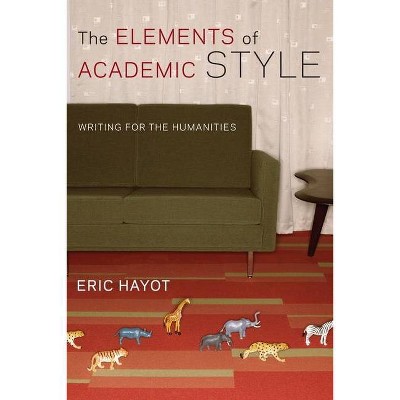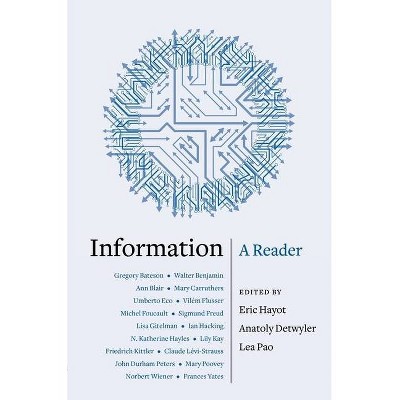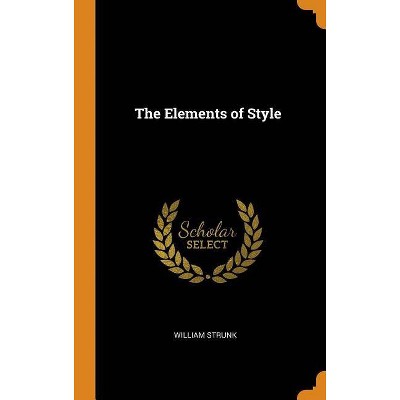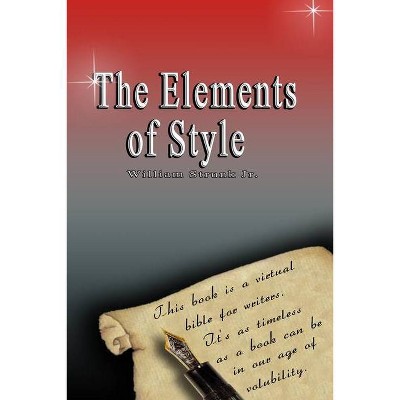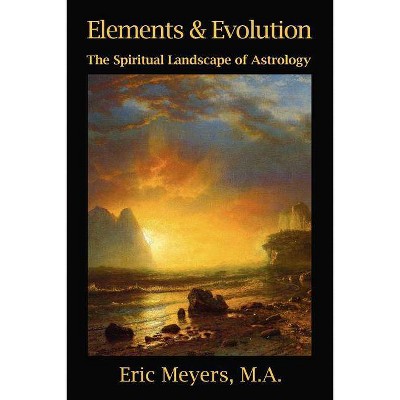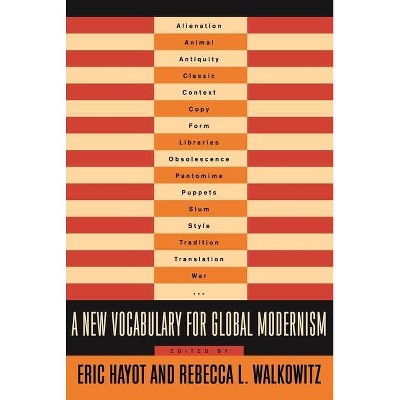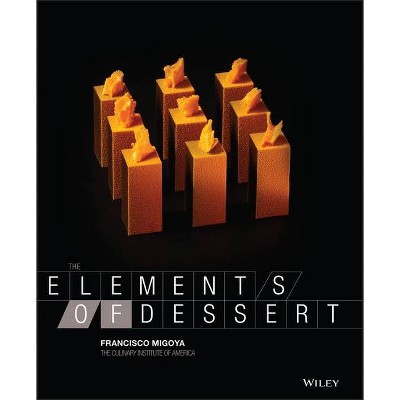The Elements of Academic Style - by Eric Hayot (Hardcover)
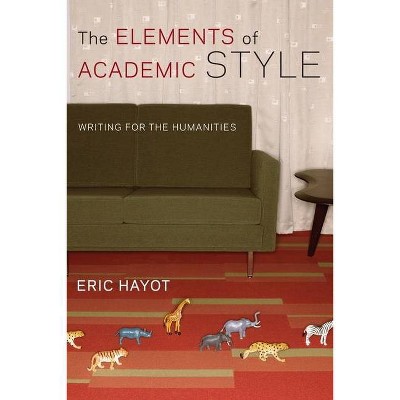
Similar Products
Products of same category from the store
AllProduct info
<p/><br></br><p><b> About the Book </b></p></br></br><p>Combining psychological support with practical suggestions for structuring paragraphs and essays composing introductions and conclusions, developing schedules and habits for writing, and using notes and citations, Eric Hayot rejuvenates scholarship and writing in the humanities. From small concerns to big-picture issues, he helps students, newly minted Ph.D.'s, and established professors shape their work and develop their voices while also adjusting their perspective as writers, encouraging scholars to think of themselves as makers and doers of important work.</p><p/><br></br><p><b> Book Synopsis </b></p></br></br>Eric Hayot teaches graduate students and faculty in literary and cultural studies how to think and write like a professional scholar. From granular concerns, such as sentence structure and grammar, to big-picture issues, such as adhering to genre patterns for successful research and publishing and developing productive and rewarding writing habits, Hayot helps ambitious students, newly minted Ph.D.'s, and established professors shape their work and develop their voices. <p/>Hayot does more than explain the techniques of academic writing. He aims to adjust the writer's perspective, encouraging scholars to think of themselves as makers and doers of important work. Scholarly writing can be frustrating and exhausting, yet also satisfying and crucial, and Hayot weaves these experiences, including his own trials and tribulations, into an ethos for scholars to draw on as they write. Combining psychological support with practical suggestions for composing introductions and conclusions, developing a schedule for writing, using notes and citations, and structuring paragraphs and essays, this guide to the elements of academic style does its part to rejuvenate scholarship and writing in the humanities.<p/><br></br><p><b> Review Quotes </b></p></br></br><br>A needed contribution to the literature on academic writing, Hayot's book will be invaluable to any writer in the humanities.--CHOICE<br><br>For literary critical postgraduates and their teachers this is a useful book.--Times Literary Supplement<br><br>The book offers valuable ways of thinking about publication-level writing and ways of incorporating writing development into graduate education that could well be of value beyond Hayot's target audience.--Adrian Chapman, Florida State University (London Centre) "London Review of Education, Vol 15, No. 1 "<br><br><i>The Elements of Academic Style</i> is an utter tour de force, a guide to scholarly writing in the humanities that manages to be at once lively, funny, absorbing, rigorous, and immensely insightful. It offers a wealth of advice from the minute and grammatical to the disciplinary and career-changing, even as it probes deeply into the humanities as they are actually practiced, in the nitty gritty of our writing. Intended for graduate students, who will benefit in untold ways from its wisdom, it is a boon for faculty as well, so acute are its observations and so intelligent its maxims. Like its progenitor, <i> Elements of Academic Style</i> has sweep, lucidity, and pitch-perfect style. But what most distinguishes this remarkable book are more unexpected qualities: its intimacy, and especially its generosity. Eric Hayot has given us all a gift.--Sarah Cole, Professor of English and Comparative Literature, Columbia University<br><br>[<i>The Elements of Academic Style</i>] has the potential to transform how we teach and practice academic writing, and it invites the kind of reading and engagement that makes such a transformation possible.... A book well worth reading and rereading.--Carla Nappi "New Books Network Seminar "<br><br>Excellent.... The book is a comprehensive, incisive, and staggeringly overdue guide to writing humanistic scholarship.... Written in assured, engaging prose, possessed of personality but not overbearing, <i>The Elements</i> should be required reading for everybody--students, faculty, even administrators--in the orbit of a humanities Ph.D. program.--Louis Bury "Hyperallergic "<br><br>My only criticism of<i> The Elements of Academic Style</i> is that it wasn't around thirty years ago, when I needed to learn everything, micro and macro, that this book teaches in its inimitable ways about the nature of scholarly writing. But I need it today just as much for its provocative suggestion that we unlearn what we believe we already know about seminar papers, chapters, dissertations, and books as kinds of writing. Challenging us to rethink what we ask our students to do (and why), Hayot links the demands of academic style to the possibilities of institutional reform. How long are seminar papers, and why do we need them anyway? Thanks to <i>The Elements of Academic Style</i>, we'll be debating these and many other questions for years to come.--Andrew Parker, Professor of French and Comparative Literature, Rutgers University<br><br>Part of the pleasure of reading this lively, friendly, and truly unique book on academic writing is getting a sense of the pleasure with which the author obviously wrote it. With intelligence, generosity, and dare I say love, Eric Hayot makes us pay attention to that which we tend most to overlook or to give short shrift in scholarly practice--the act of style and its integral relation to critical thought--and moreover shows us how to enjoy the act of reclaiming it. Academic writers at all stages of experience will return to these pages again and again.--Sianne Ngai, author of <i>Our Aesthetic Categories: Zany, Cute, Interesting</i><br><p/><br></br><p><b> About the Author </b></p></br></br>Eric Hayot is professor of comparative literature and Asian studies at the Pennsylvania State University. He is the author of <i>On Literary Worlds</i>, <i>The Hypothetical Mandarin: Sympathy, Modernity, and Chinese Pain</i> (co-recipient of the 2010 Modernist Studies Association Book Prize), and <i>Chinese Dreams: Pound, Brecht, Tel quel</i>. He has worked for the <i>Columbus Dispatch</i> and the Associated Press. More recently, his writing has appeared in the<i> Los Angeles Review of Books</i> and <i>Public Books</i>. He also is a cofounder of the blog <i>Printculture</i>.
Price History
Price Archive shows prices from various stores, lets you see history and find the cheapest. There is no actual sale on the website. For all support, inquiry and suggestion messagescommunication@pricearchive.us
